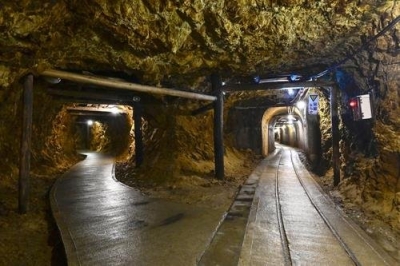Tokyo, 28 December : , South Korea asked Japan Tuesday to rescind its plan to list an ex-mine linked to forced labor during wartime as a Unesco World Heritage Site.They called the decision “very deplorable.”According to Yonhap News Agency, Japan’s Agency for Cultural Affairs is reportedly pushing for Sado’s registration on the highly sought-after list of places where Koreans were made into labor during Tokyo’s 1910-1945 colonization.
Seoul had previously criticized Tokyo for not honoring its promise to pay forced labour victims at the information center on its sites of industrial revolution that was designated in 2015, and this move followed a series of protests by Seoul.
Choi Young-sam from Seoul’s Foreign Ministry stated, “It is extremely deplorable (Japan), has decided to push for World Heritage designation for the mine.Another site where Koreans were forced to labour.We call for the immediate retraction.”
He said that the government would sternly cooperate with international communities to stop a place where workers were made to work against their will being named a Unesco World Heritage Site without sufficient explanation.
According to the ministry, Kyun Jongho, the Ministry director general for cultural affairs called Kazuo Chujo (director of Public Information and Cultural Centre at Seoul’s Japanese Embassy) to protest Tokyo’s decision to build the mine.
In the 1600s Sado was a mine that produced gold.
However, it became a war-related material production facility during World War II.In 1946, it was closed.
Historical documents show that at least 1200 Koreans were made to work in the mines under extreme conditions.
This latest move only adds to the historical tensions that exist between these two neighbors.
Uncertain if Tokyo will refer to the wartime past in the recommendation for the mine as a heritage site.
The Japanese government will submit a recommendation letter to Unesco if it is chosen.
After that, the UN agency will take a decision for 2023.
A Seoul official stated that the Korean Foreign Ministry had called in the Japanese diplomat and discussed the possibility of forming a Task Force with specialists and other agencies to address the problem.
Japan was also urged by the Ministry to fulfill an earlier promise to provide information about forced labor of Koreans at Hashima Island (also known as Battleship Island), which was designated a Unesco World Heritage Site in 2015.
Tokyo pledged to build an information center to explain the forced labor after the Meiji-era site was designated in 2015.
However, it did not highlight the achievements of Japan’s industrial revolution.
ksk/
#Japan #include #laborlinked #Heritage #Seoul







